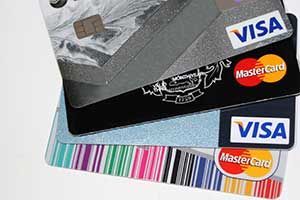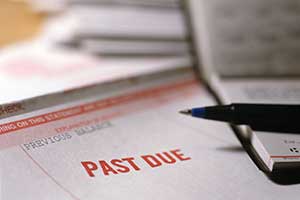
Can You Declare Bankruptcy on Credit Cards Only?
While credit card debt is a major reason people wind up filing for bankruptcy, you cannot file for bankruptcy on credit card debt alone, as the law requires that all your debts be listed in the bankruptcy documents. However, because bankruptcy can eliminate credit card and other unsecured debts, filing will often put you in a better financial position that allows you to keep your home.
Keeping a house is a major concern for most people filing for bankruptcy in Ohio, and there are several ways that bankruptcy can allow you to keep your house while discharging unsecured debt such as from credit cards. You will be able to keep your home if you can meet the requirements of the bankruptcy chapter that you choose, whether Chapter 7 or Chapter 13.
Bankruptcy laws are complicated, and our Ohio bankruptcy lawyer can help you choose the correct chapter and increase the chances of your being able to keep your home, car, and other assets. The skilled and compassionate Ohio debt relief attorneys at Fesenmyer Cousino Weinzimmer understand that even the most well-intentioned people can find themselves in financial difficulty.
Contact us to learn about your options for filing bankruptcy on credit cards while keeping your home. We offer a free consultation to evaluate your individual financial situation by looking at your debts, your income, and your goals and coming up with a debt-relief plan that’s best for you. Call us today at 614-228-4435 (Columbus), 937-222-7472 (Dayton), or 877-654-5297 (Cincinnati) for your free consultation and to learn how we can help.
Can You File Bankruptcy on Credit Cards Only?
Credit cards are one of the easiest, but most expensive, ways to borrow, so it’s no wonder that credit card debt is a major reason for filing for bankruptcy. People who don’t pay credit cards off in a timely fashion or only pay the minimum balance often wind up in situations with interest rates that can reach almost 20 percent. With such a high interest rate, debt can snowball quickly, accumulate, and never get paid off. All debts must be listed in your bankruptcy petition when filed but you can reaffirm some debts to allow them to survive the bankruptcy process.
According to the CNBC, 43 percent of card holders carry a balance each month, and the Federal Reserve reports that outstanding card debt hit a record $1.023 trillion in November 2017. Rising credit card debt is a leading reason why Americans get into a financial hole and wind up being threatened with foreclosure on their homes.
If you have reached the point where your credit card and other debt have become overwhelming, filing for bankruptcy may be your best option. Bankruptcy, a legal way to have many debts forgiven, can eliminate credit card and other unsecured debt, and may still allow you to keep your home.
How You Can Keep Your House Through Chapter 7 or Chapter 13 Bankruptcy
The most common types of consumer bankruptcy are Chapter 7 and Chapter 13. Once bankruptcy is filed, an automatic stay — an order from the bankruptcy court that prevents creditors from trying to collect while the court oversees the bankruptcy case — goes into effect. This automatic stay will stop foreclosure on your home, lawsuits, garnishments, and harassing collection calls. The stay lasts only until the bankruptcy proceedings are complete, but it will give you some breathing room; and if you can eventually continue to make mortgage payments, you will not lose your home.
1. Chapter 7 bankruptcy, is the most popular type of bankruptcy. It is quick and gives you a fresh start as it will eliminate many debts, including those for credit cards, and you usually can keep your home.
There are some reasons why you can lose your home or other property in Chapter 7. This can happen if:
- you have stopped paying your mortgage or loan and cannot continue to pay it
- your house is valued over the exemption limits for a Chapter 7
However, you will be able to keep your home if you have been making your payments and can continue to make them in the future. You may also be able to keep your house through using exemptions.
While your non-exempt property can be sold by a bankruptcy trustee to pay off your debt, Ohio has exemption laws that can protect certain types of property, including your home, clothing, cars, equipment used for work, and household furnishings. If all your property is exempt, you may qualify for a “no asset” bankruptcy. In this case, you can keep your home, your car, your pension, and more.
2. Chapter 13 bankruptcy allows you to consolidate payments to repay some or all of your debt in affordable monthly payments over a three- to five-year period. You do not have to come up with a lump sum to pay your past-due amounts, which are spread over the life of the Chapter 13 payment plan; once you successfully complete the plan, dischargeable debts covered by the plan are eliminated. If you can continue to make mortgage payments, you can keep your home rather than losing it to foreclosure.
Chapter 13 also provides a way to get caught up if you are behind in mortgage payments. You can propose a payment plan that treats mortgage arrearage as a separate debt and add it to your payment plan, but you must have enough income to make both your regular monthly mortgage payment and your plan payment while you’re in bankruptcy.
With Both Chapter 7 and Chapter 13, You May Be Able to Keep Your Home
So, while Chapter 7 and Chapter 13 bankruptcy are different, both can allow you to keep your home. And, because credit card and other debts are eliminated, making mortgage payments after bankruptcy will be easier.
Be aware that exemption laws do not protect all property; a bankruptcy filing does not discharge all types of debts; and there are different classes of creditors that may be able to seize your property. The attorneys at Fesenmyer Cousino Weinzimmer understand each of these distinctions and can provide the best legal advice to protect your assets. Call us for help today.
Ask our Team about Filing Bankruptcy on Credit Cards, so You Can Keep Your Home
If debt is something you can no longer handle, take the first step toward relief by contacting the seasoned and compassionate Ohio debt-relief attorneys at Fesenmyer Cousino Weinzimmer. We offer a free initial consultation to evaluate your entire financial situation and determine the best fit for your particular circumstances. We will make sure you are aware of all your options to eliminate credit card and other debt and still keep your home. We will be there for you and walk you through the process every step of the way.
Delaying can only worsen your situation, so call one of our conveniently located office branches to set up your free consultation so we can determine what debt relief solutions will work best for you.
Call us today at 614-228-4435 (Columbus), 937-222-7472 (Dayton), or 877-654-5297 (Cincinnati).


